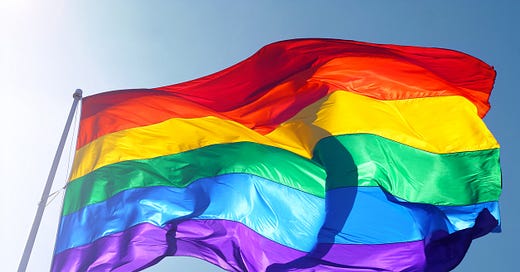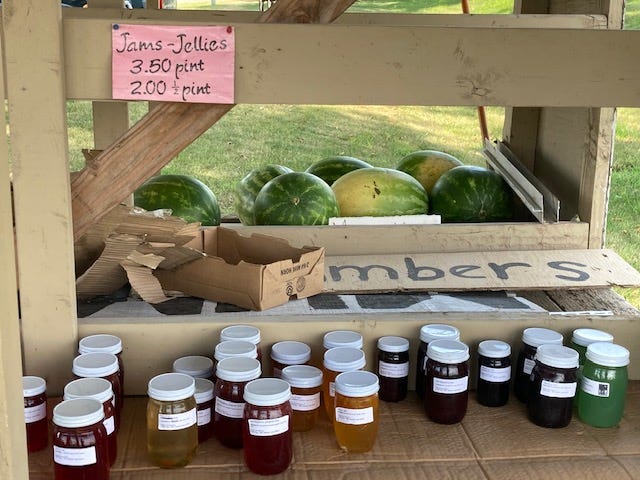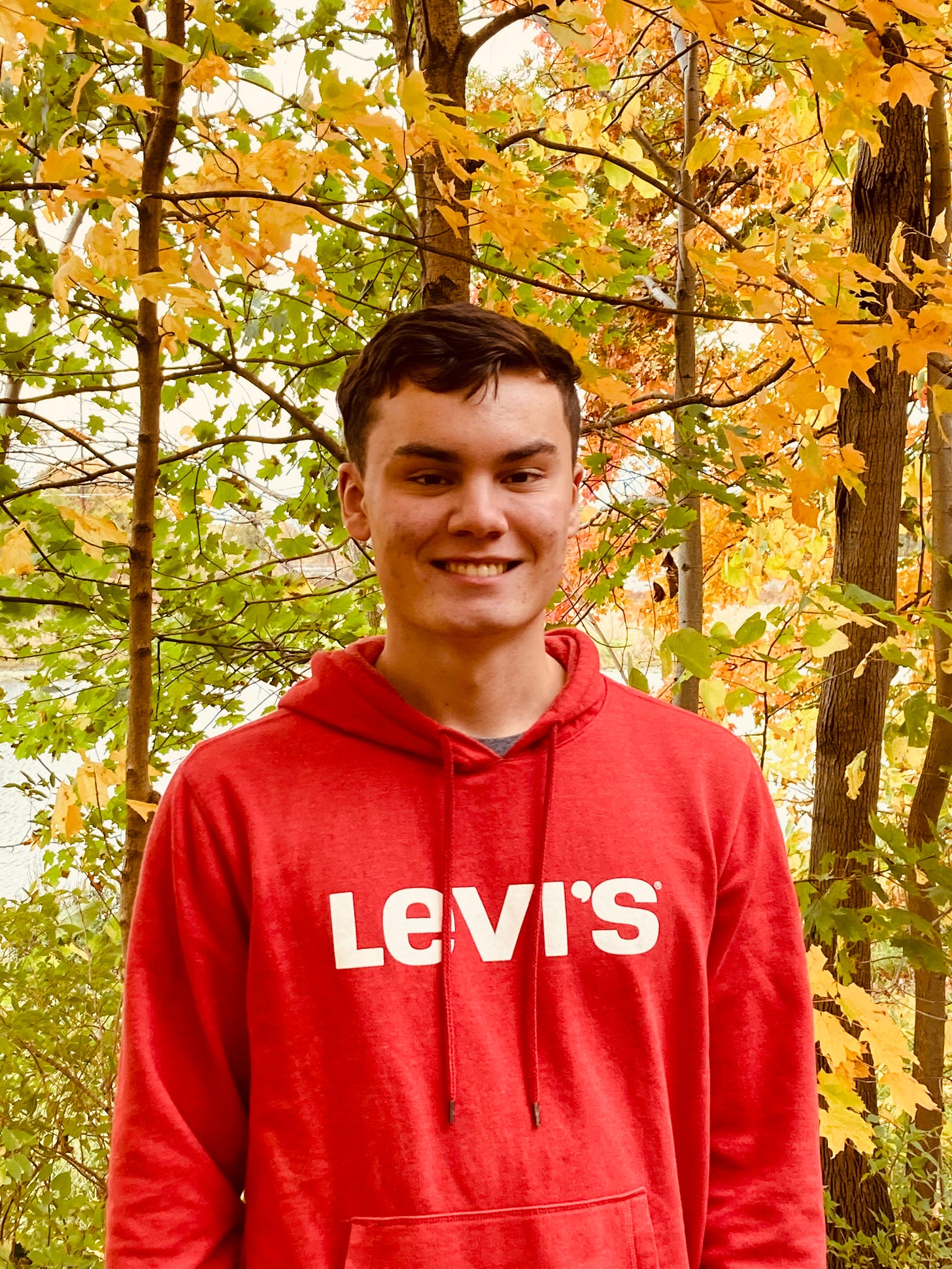As a child, I would often help my grandma plant a garden. Together, we would plant tomatoes, beans, and many other vegetables. As I grew older, I learned there were better ways to grow the same plants. Fences would stop rabbits from stealing our plants and grass clippings in between the rows would control weeds. I learned the basics of gardening from my grandma while picking up better practices as I grew older.
This past summer at a delegate assembly of Mennonite Church USA (MCUSA), the denomination voted to shift its position on LGBTQ+ matters towards a more healthy and inclusive environment. I had the privilege to be involved as a youth delegate representing my home church.
When I heard about the four important resolutions for the assembly, two piqued my interest. One retired the Membership Guidelines, a 20-year-old transitional document which included harmful language prohibiting pastors from performing same-sex marriages. The other, “A Resolution for Repentance and Transformation” was a broader statement, apologizing for harms perpetrated by the church towards LGBTQ+ people. The resolution committed to honoring LGBTQ+ people and its relationship to them through concrete actions.
These new commitments would produce better fruits from the Mennonite faith. The resolution would acknowledge that by pushing people away, past policies have hindered the full body from flourishing.
In many ways I am about as stereotypically Mennonite as one can be, affording me a sense of belonging and acceptance by my own community. I am a white cisgender man, graduated from a Mennonite high school, currently attending a Mennonite university, active in my church, and carry a common Mennonite last name.
Yet I also identify as gay, which has led to separation from some in my community. That separation is the reason I found those two resolutions so important. Part of who I am was being debated within my own church. It was one of my requirements for finding a church at college. The church had to be welcoming and affirming of LGBTQ+ people.
I quickly arranged to be a delegate to the assembly, and met with the others who would be attending. We educated our church community on the resolutions and listened to their thoughts. We heard a clear divide over the more inclusive resolution. Some felt like conservative voices were losing their place in the church. Others were happy to move towards repairing harm done to the LGBTQ+ community.
In the delegate session, I had high hopes but very low expectations for the outcomes. By chance, a high school friend was assigned to my table which relieved much of my nervousness about the whole process. Our table had meaningful and respectful discussions over the resolutions, and we shared about our churches. The overwhelming support for the resolutions by the youth delegates when we met together gave me hope for the future of the church.
The first resolution regarding the Membership Guidelines easily passed with 83 percent, officially retiring those restrictive directives. The second resolution sparked charged debate during the whole body discussion. As the final ballots were counted, I was consumed by anxiety. The previous success gave me hope, but I was wary of being too excited.
Finally, the results were read and the Repentance and Transformation resolution had passed with 55 percent. I was caught off guard and the weight of what we had achieved washed over me with tears of joy and disbelief.
The culmination of years of work by persistent supporters of LGBTQ+ people in MCUSA resulted in the recognition of their value. There is now an LGBTQ+ constituency group that can guide the denominational board toward further inclusion. The resolution commits the denomination to honor LGBTQ+ people and relationships.
Politically, the LGBTQ+ community has gained new federal protections for same-sex marriage with President Biden’s signing of the Respect For Marriage Act. It requires states to recognize same-sex and interracial marriages that were performed elsewhere. Over 20 religious organizations united in its support during its debate in the Senate, writing “freedom to marry who one loves is a matter of human dignity”. A growing section of religious institutions are making the shift towards a more inclusive church and society.
As we grow, we learn new ways to promote justice, change ideas, and end practices that were causing harm. There is still more work to be done to ensure full inclusion, but by removing barriers to LGBTQ+ people in the church and in society, we can create a more diverse, fruitful community.
Aidan Yoder grew up in Southeast Iowa, and is a student in his second year at Eastern Mennonite University, double majoring in History and Political Science.
“Mary Swander’s Emerging Writers” uses the money from paid subscriptions to pay the guest writers.
Please read and support my colleagues in the Iowa Writers Collaborative:
Iowa Writers’ Collaborative Columnists
Laura Belin: Iowa Politics with Laura Belin, Windsor Heights
Doug Burns: The Iowa Mercury, Carroll
Dave Busiek: Dave Busiek on Media, Des Moines
Art Cullen: Art Cullen’s Notebook, Storm Lake
Suzanna de Baca Dispatches from the Heartland, Huxley
Debra Engle: A Whole New World, Madison County
Julie Gammack: Julie Gammack’s Iowa Potluck, Des Moines and Okoboji
Joe Geha: Fern and Joe, Ames
Jody Gifford: Benign Inspiration, West Des Moines
Beth Hoffman: In the Dirt, Lovilla
Dana James: New Black Iowa, Des Moines
Pat Kinney: View from Cedar Valley, Waterloo
Fern Kupfer: Fern and Joe, Ames
Robert Leonard: Deep Midwest: Politics and Culture, Bussey
Tar Macias: Hola Iowa, Iowa
Kurt Meyer, Showing Up, St. Ansgar
Kyle Munson, Kyle Munson’s Main Street, Des Moines
Jane Nguyen, The Asian Iowan, West Des Moines
John Naughton: My Life, in Color, Des Moines
Chuck Offenburger: Iowa Boy Chuck Offenburger, Jefferson and Des Moines
Barry Piatt: Piatt on Politic Behind the Curtain, Washington, D.C.
Mary Swander: Mary Swander’s Buggy Land, Kalona
Mary Swander: Mary Swander’s Emerging Voices, Kalona
Cheryl Tevis: Unfinished Business, Boone County
Ed Tibbetts: Along the Mississippi, Davenport
Teresa Zilk: Talking Good, Des Moines
To receive a weekly roundup of all Iowa Writers’ Collaborative columnists, sign up here (free): ROUNDUP COLUMN
We are proud to have an alliance with Iowa Capital Dispatch.







I grew up near the Iowa Mennonite High School with many Mennonite and Amish relatives close by. It is so encouraging to learn of this change in the Mennonite church. Thanks for sharing Aiden's story, Mary!
What a lovely, heart-warming piece. I felt honored to be able to read it. Thank you.